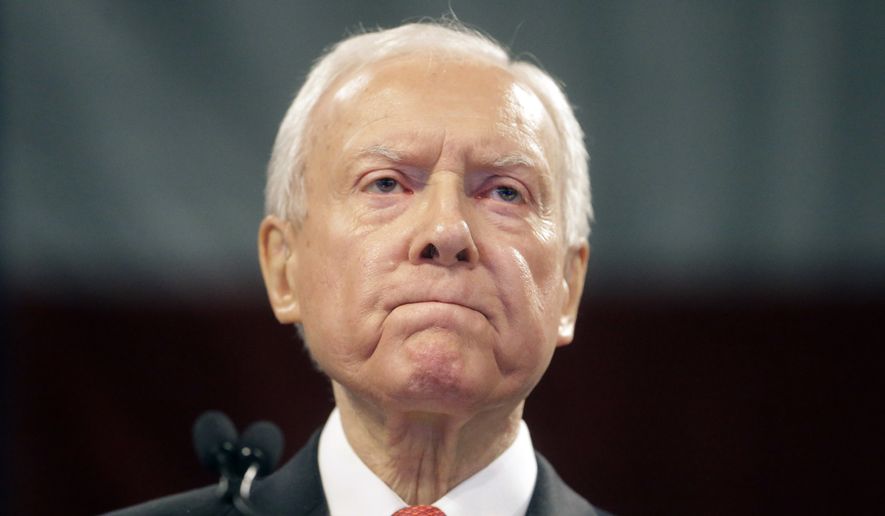The Russian ambassador to the U.S. has written to Sen. Orrin Hatch for assistance in setting up meetings with top U.S. officials because the current diplomatic atmosphere in Washington “is toxic.”
In a March 9 letter to the Utah Republican obtained by Politico, Ambassador Anatoly Antonov wrote: “I have to face difficulties in setting up contacts with U.S. high-ranking officials. A lot of meeting requests with the leadership of U.S. agencies and members of Congress were either left without a response, or simply refused under no pretex.”
Mr. Antonov’s letter listed 20 top lawmakers and Trump administration officials who have thus far refused or ignored his meeting requests.
They include White House Chief of Staff John Kelly, House Minority Leader Nancy Pelosi, Vice President Mike Pence, Energy Secretary Rick Perry, Treasury Secretary Steven Mnuchin, Agriculture Secretary Sonny Perdue, Commerce Secretary Wilbur Ross, Attorney General Jeff Sessions, Homeland Security Secretary Kirstjen Nielsen, FBI Director Christopher Wray and Federal Reserve Chairman Jerome Powell.
“I would be very grateful for your advice on how to develop contacts with members of US Congress, departments and agencies, as well as for your possible assistance in setting up such meetings,” the ambassador wrote.
A Hatch spokeswoman did not immediately reply for comment on Politico’s report, but the senator has previously confirmed that he met with Mr. Antonov.
Late last year Mr. Antonov, a deputy foreign minister, replaced longtime Ambassador Sergey Kislyak, who left Washington under a cloud of suspicion related to multiple Russian election-meddling investigations and accusations that some officials had failed to disclose meetings with Russians in recent years.
Since the 2016 U.S. presidential election, Russian activity has faced an unprecedented array of U.S. media attention and congressional and federal investigations.
Diplomatic observers note that Washington has been in the grips of “Russophobia” with many U.S. lawmakers and other officials expressing fear of publicly meeting anyone tied to the Kremlin.
“It seems to me that atmosphere in Washington is poisoned — it’s a toxic atmosphere,” Mr. Antonov said during a recent TV interview.
This week, the West and Moscow engaged in tit-for-tat diplomatic expulsions in the wake of a nerve-gas attack on a former Russian double agent living in England.
On Thursday, Russian Foreign Minister Sergey Lavrov announced that 60 U.S. diplomats would be expelled and the U.S. consulate in St. Petersburg closed down, days after the Trump administration expelled 60 Russian diplomats and closed the Russian Consulate in Seattle in support of the U.K. government and Prime Minister Theresa May.
U.K. officials said analysis of a nerve gas used to poison former Russian spy Sergei Skripal and his daughter Yulia in early March point to the direct involvement of Russian President Vladimir Putin and his government, charges the Russians have staunchly denied.
In December during his annual end-of-year press conference in Moscow, Mr. Putin accused Washington of being obsessed with its own internal “spy-mania.”
• Dan Boylan can be reached at dboylan@washingtontimes.com.




Please read our comment policy before commenting.